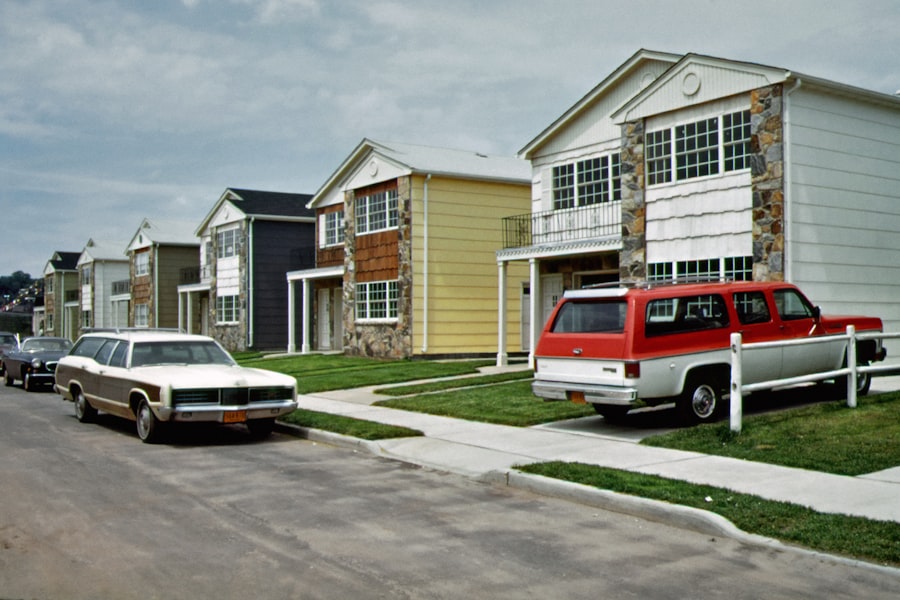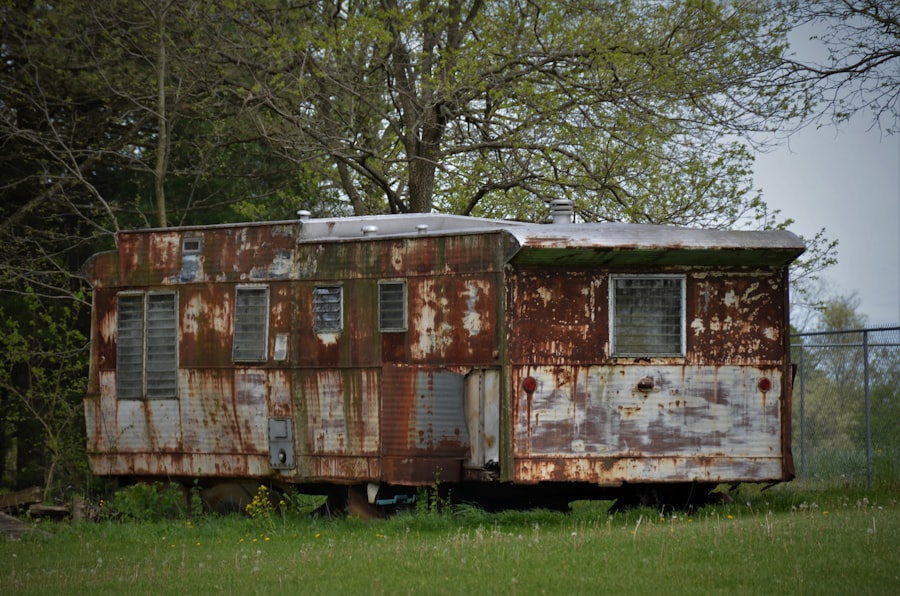Repo mobile homes, short for repossessed mobile homes, are manufactured homes that have been reclaimed by lenders due to the previous owner’s failure to meet mortgage obligations. These homes are often sold at a fraction of their original price, making them an attractive option for buyers looking for affordable housing solutions. The process of repossession typically occurs when the homeowner defaults on their loan, leading the lender to take back the property to recover their losses.
Repo mobile homes can vary significantly in condition, size, and age, ranging from nearly new models to older units that may require extensive repairs. The market for repo mobile homes is influenced by various factors, including economic conditions, interest rates, and the overall demand for affordable housing. As the cost of traditional homes continues to rise, many individuals and families are turning to mobile homes as a viable alternative.
Repo mobile homes can be found in various settings, including mobile home parks and private lots. Understanding the nuances of this market is crucial for potential buyers, as it can help them navigate the complexities of purchasing a repossessed property and ensure they make informed decisions.
Key Takeaways
- Repo mobile homes are repossessed properties sold at discounted prices.
- Buying repo mobile homes offers affordability and potential investment value.
- Repo mobile homes can be found through auctions, dealers, and online listings.
- Important considerations include condition, location, and legal aspects before purchase.
- Financing options and renovation possibilities make repo mobile homes accessible and customizable.
Benefits of Buying a Repo Mobile Home
One of the most significant advantages of purchasing a repo mobile home is the potential for substantial cost savings. These homes are often sold at prices well below market value, allowing buyers to acquire a property that might otherwise be out of reach. For instance, a repo mobile home that originally sold for $100,000 might be available for as little as $50,000 or even less, depending on its condition and location.
This affordability can be particularly appealing to first-time homebuyers or those looking to downsize without sacrificing quality of life. In addition to financial savings, buying a repo mobile home can also provide buyers with a quicker path to homeownership. The process of purchasing a repossessed property is often more streamlined than that of traditional real estate transactions.
Many repo mobile homes are sold through auctions or directly from lenders, which can expedite the buying process. Furthermore, since these homes are typically sold “as-is,” buyers may have more flexibility in negotiating terms and conditions. This can lead to a faster closing process, allowing individuals and families to move into their new homes sooner than they might with conventional housing options.
Where to Find Repo Mobile Homes for Sale

Finding repo mobile homes for sale requires some research and diligence. One of the most common avenues is through banks and financial institutions that handle repossessions. Many lenders maintain lists of available properties on their websites or through real estate agents specializing in repossessed properties.
Additionally, government agencies such as the Department of Housing and Urban Development (HUD) often have listings for repo mobile homes that were financed through federal programs. Another effective way to locate repo mobile homes is through online auction sites and classified ad platforms. Websites like eBay, Craigslist, and specialized real estate platforms often feature listings for repossessed mobile homes.
Buyers can filter their searches based on location, price range, and other criteria to find suitable options. Local real estate agents who focus on manufactured homes can also be invaluable resources, as they may have insider knowledge about upcoming listings or properties that are not widely advertised.
Things to Consider When Buying a Repo Mobile Home
| Consideration | Description | Typical Range/Value | Notes |
|---|---|---|---|
| Age of Mobile Home | How old the mobile home is | 5 – 30+ years | Older homes may require more repairs |
| Condition | Overall state including structural integrity and appliances | Good, Fair, Poor | Inspect for water damage, mold, and foundation issues |
| Location | Where the mobile home is situated | Urban, Suburban, Rural | Location affects resale value and living convenience |
| Size | Square footage and number of bedrooms/bathrooms | 400 – 1500+ sq ft, 1-4 bedrooms | Consider your space needs and family size |
| Price Range | Cost of the repo mobile home | Varies widely by condition and location | Compare with market prices for similar homes |
| Financing Options | Availability of loans or payment plans | Repo loans, personal loans, cash | Repo homes may have limited financing options |
| Title and Ownership | Verification of clear title and ownership status | Clear, Liens, Unknown | Ensure no outstanding liens or legal issues |
| Inspection Costs | Cost to have the home professionally inspected | 100 – 500 | Highly recommended before purchase |
| Repair Costs | Estimated expenses to fix issues | Varies widely | Get estimates to avoid surprises |
| Park Rules and Fees | Regulations and monthly fees if located in a mobile home park | Monthly fees: 200 – 600 | Check park rules for pets, modifications, etc. |
When considering the purchase of a repo mobile home, several critical factors should be taken into account. First and foremost is the condition of the home itself. Since many repo mobile homes are sold “as-is,” it is essential for buyers to conduct thorough inspections before finalizing any purchase.
This includes checking for structural issues, plumbing and electrical systems, and any signs of water damage or mold. Engaging a professional inspector can provide valuable insights into the home’s condition and help buyers avoid costly surprises down the line. Another important consideration is the location of the mobile home.
Buyers should evaluate the surrounding area, including access to amenities such as schools, shopping centers, and healthcare facilities. Additionally, zoning regulations and community rules in mobile home parks can significantly impact a buyer’s experience. Understanding these regulations is crucial, as they may dictate how the property can be used or modified in the future.
Buyers should also consider whether they prefer a home in a park setting or on private land, as this choice can affect both lifestyle and long-term investment potential.
Financing Options for Repo Mobile Homes
Financing a repo mobile home can differ from traditional home loans due to the unique nature of manufactured housing. Many lenders offer specific financing options tailored for mobile homes, which may include personal loans or chattel loans rather than conventional mortgages. Chattel loans are secured by the home itself rather than the land it sits on, making them a common choice for buyers who plan to place their mobile home in a park or on rented land.
Buyers should also explore government-backed loan programs designed for manufactured housing. The Federal Housing Administration (FHA) offers loans that can be used to purchase repo mobile homes, provided they meet certain criteria. These loans often come with lower down payment requirements and more flexible credit standards than conventional financing options.
Additionally, some state and local programs may provide assistance or incentives for purchasing manufactured homes, further expanding financing possibilities for prospective buyers.
Renovating and Customizing a Repo Mobile Home

Renovating a repo mobile home can be an exciting opportunity for buyers looking to personalize their living space while increasing its value. Many repo homes may require updates or repairs, which can range from minor cosmetic changes to significant structural renovations. Buyers should approach renovations with a clear plan in mind, focusing on areas that will enhance both functionality and aesthetics.
Common renovation projects include updating kitchens and bathrooms, replacing flooring, and improving energy efficiency through insulation or window upgrades. For instance, a kitchen remodel might involve installing new cabinets and countertops while upgrading appliances to more energy-efficient models. Such improvements not only create a more enjoyable living environment but can also increase the home’s resale value if the owner decides to sell in the future.
Customizing a repo mobile home allows buyers to create a space that reflects their personal style while ensuring it meets their specific needs.
Potential Challenges of Buying a Repo Mobile Home
While there are numerous benefits to purchasing a repo mobile home, potential buyers should also be aware of the challenges that may arise during the process. One significant concern is the potential for hidden issues within the home that may not be immediately apparent during an initial inspection. Problems such as outdated wiring or plumbing issues can lead to unexpected expenses after purchase.
Buyers should be prepared for the possibility of additional repairs and budget accordingly. Another challenge is navigating the legal aspects of purchasing a repossessed property. The process can vary significantly depending on state laws and regulations governing manufactured housing sales.
Buyers must ensure they understand their rights and responsibilities throughout the transaction process, including any necessary paperwork related to title transfers or permits required for renovations. Engaging legal counsel or working with an experienced real estate agent familiar with repo transactions can help mitigate these challenges and ensure a smoother buying experience.
The Future of Repo Mobile Homes in Affordable Housing
As housing affordability continues to be a pressing issue across many regions, repo mobile homes are likely to play an increasingly important role in providing accessible housing options for individuals and families. The rising costs associated with traditional homeownership have led many prospective buyers to seek alternative solutions, making manufactured housing an attractive option due to its lower price point. Moreover, as urban areas become more densely populated and housing shortages persist, there is potential for innovative developments in mobile home communities that prioritize sustainability and modern living standards.
This could include eco-friendly designs, improved infrastructure within parks, and enhanced community amenities that cater to residents’ needs. As attitudes toward manufactured housing evolve and more people recognize its viability as an affordable housing solution, repo mobile homes may become an integral part of addressing the ongoing housing crisis in many communities across the country.



